China is the world’s second largest economy, a startling transformation accomplished in the span of a generation, starting from the late 1970s when it was largely a closed society.
But the country faces a number of issues and changes in the years ahead and those answers will be partly decided by the country’s leadership over the next few weeks and months, Xiang Bing, Founding Dean and Professor of China Business and Globalization at the Cheung Kong Graduate School of Business (CKGSB), said at a recent CKGSB Knowledge Series event.
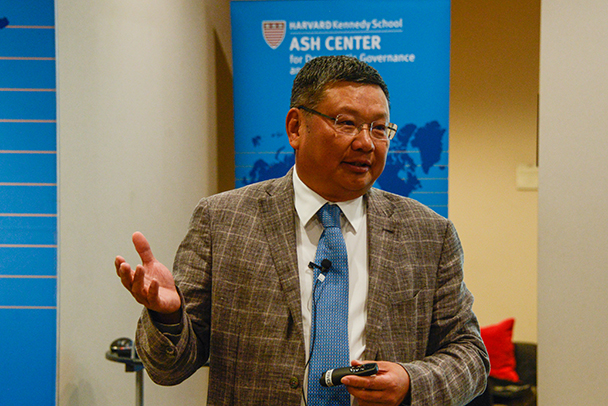
What is vital going forward, Dean Xiang said, is for China to assume more responsibility for global issues, given that it is a growing economic force, accounting for nearly 20 percent of the world’s population.
“We just have to do our share,” the Dean said in the question and answer session after his presentation. “It is about time for China to make our contributions to the world.”
Some of the changes already taking place are fairly well known, the professor said. They include changes to the development model that has been in place for decades, which has included reforms and opening up the country, an export and investment driven economy, weakness in intellectual property protection and the fact financial reform lags economic growth among others, he pointed out.
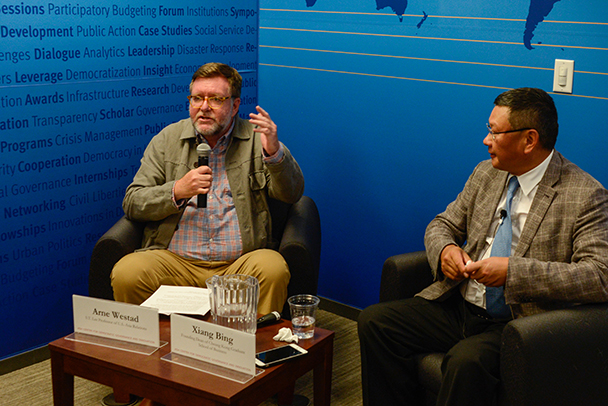
This in turn, he continued, has led to the prominence of state-owned enterprises in a form of state capitalism, which has also brought corruption into the spotlight and forced the authorities to step in.
Other issues flowing from this model are potential real estate bubbles, the dependence on trade and resources, income and wealth inequality and issues of pollution and sustainability, Dean Xiang added.
He said a number of transformations will confront China going forward. One is economic restructuring, which is often tied to the reform of giant state-owned enterprises and financial systems.
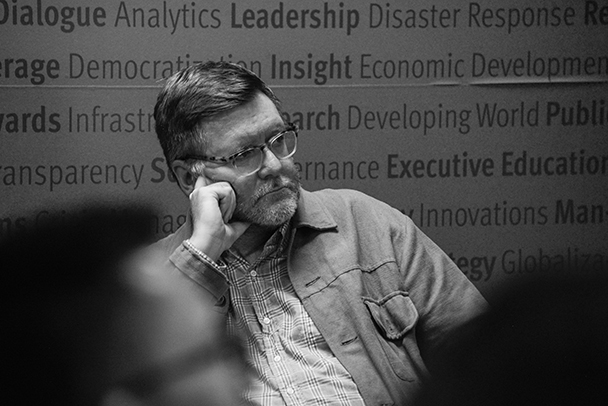
Sectors that could see further deregulation include financial services, telecommunications, media, oil and gas, cultural and creative industries, and healthcare, among others.
The country must also embrace disruptive technologies such as Artificial Intelligence, which is of increasing importance for leading tech and social media companies around the world, he said.
Dean Xiang said China will also be a player in the evolution of global trading systems given Beijing’s heavy investment in the ‘Belt and Road’ initiative and argued that this must go hand-in-hand with strategic changes that should be seen in Chinese enterprises.
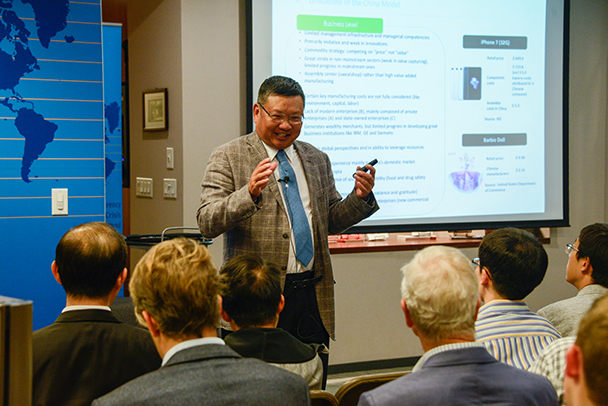
On a political basis, China is also taking on more of the responsibility for global governance issues such as climate change and the fight against terrorism, Dean Xiang said.
For the country itself, Dr Xiang said challenges abound in the way it runs its affairs. He then listed three key issues, namely income and wealth disparity, diminishing social mobility and sustainable development.
China must also avoid what economists and analysts call “the middle income trap”, he said. Traditionally, the biggest problem for economies is to move from resource-driven growth dependent on low-priced labor to an economy based on high productivity and innovation.
However, this will be further complicated by China’s ageing population. Demographers estimate that, by 2050, more than a quarter of China’s population will be over 65 years of age. As a result, the younger generation will need to underwrite the growing requirements of their elders, with Dean Xiang adding that networks such as social security should be nurtured in China. “Besides, the culture of giving back has yet to develop in China,” he said.
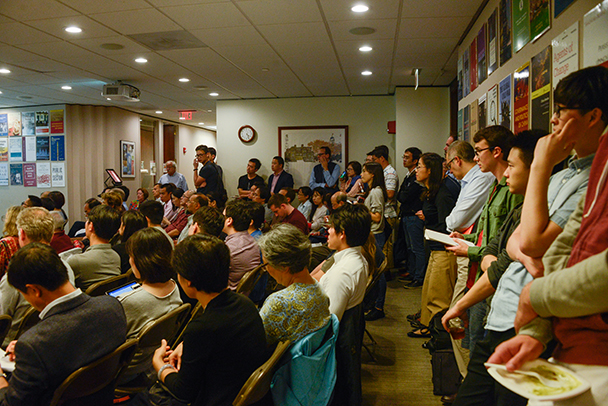
The cultivation of civil society and the social contract between China’s government and its people will be something to follow over the coming years, Dean Xiang said, adding that China must shake off its historic tendency to look inward and extend its reach to the outside world.
However, as China continues to take more of a global role, the challenge for the government domestically will be to foster this outward push without increasing inequality at home, the Dean concluded.